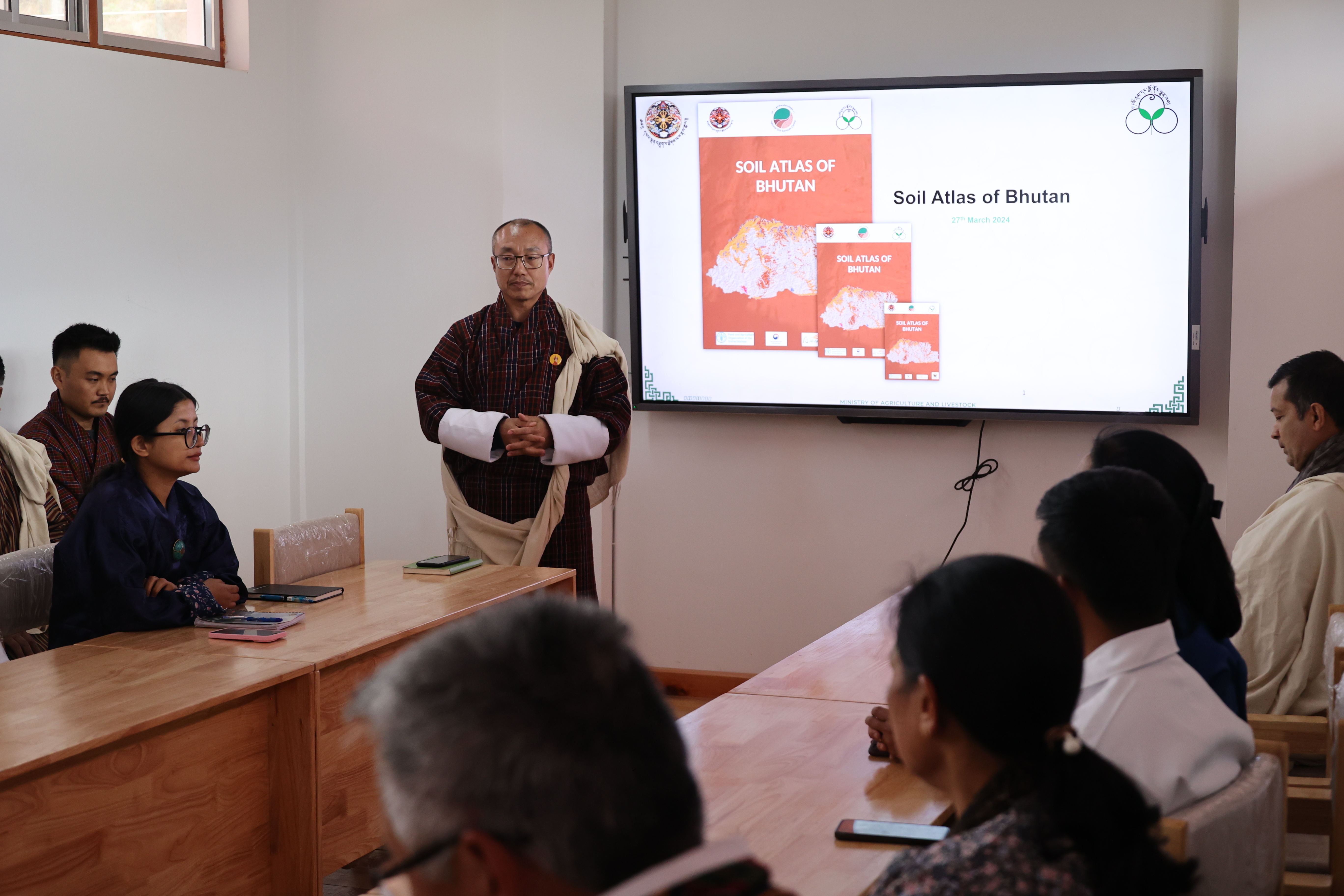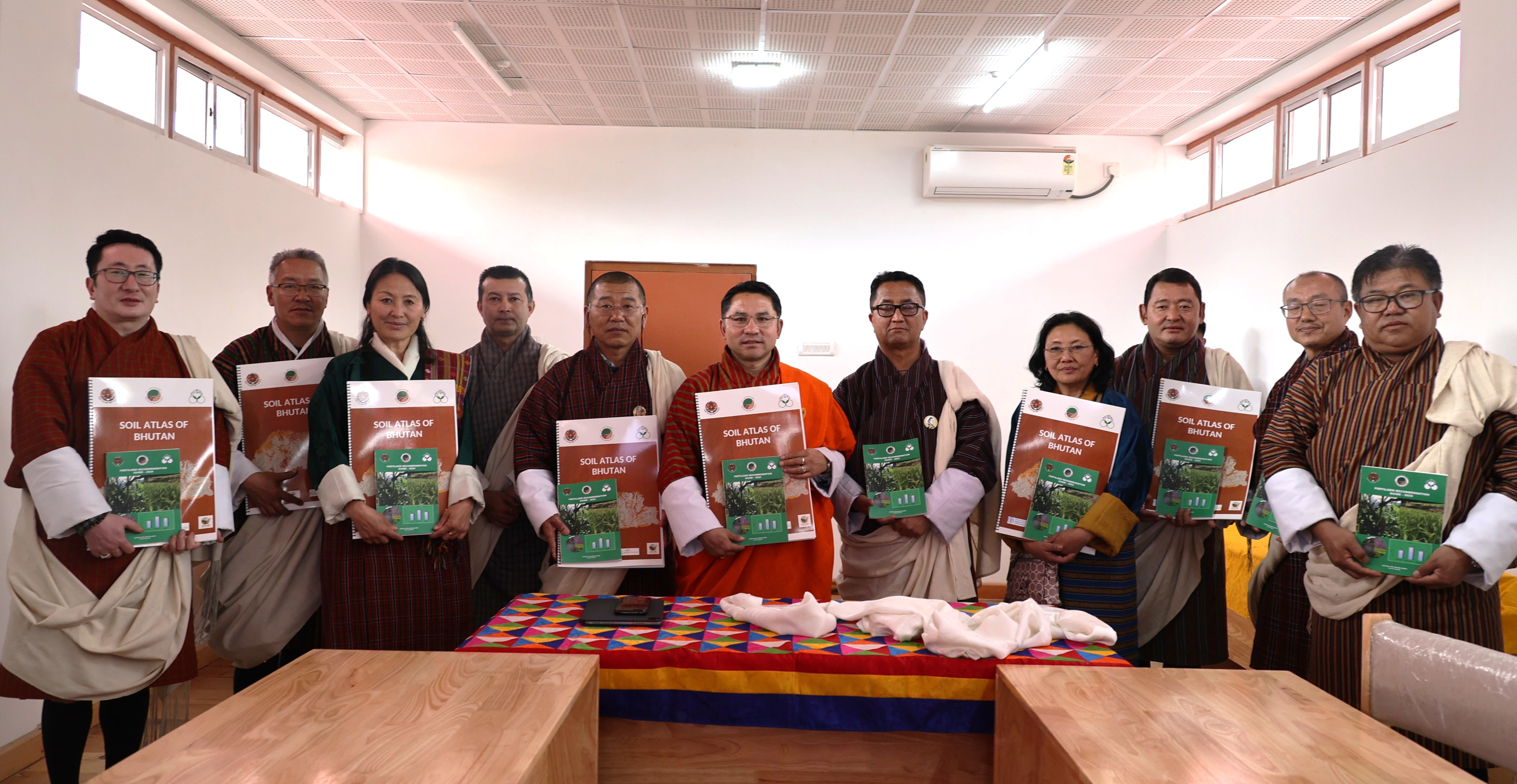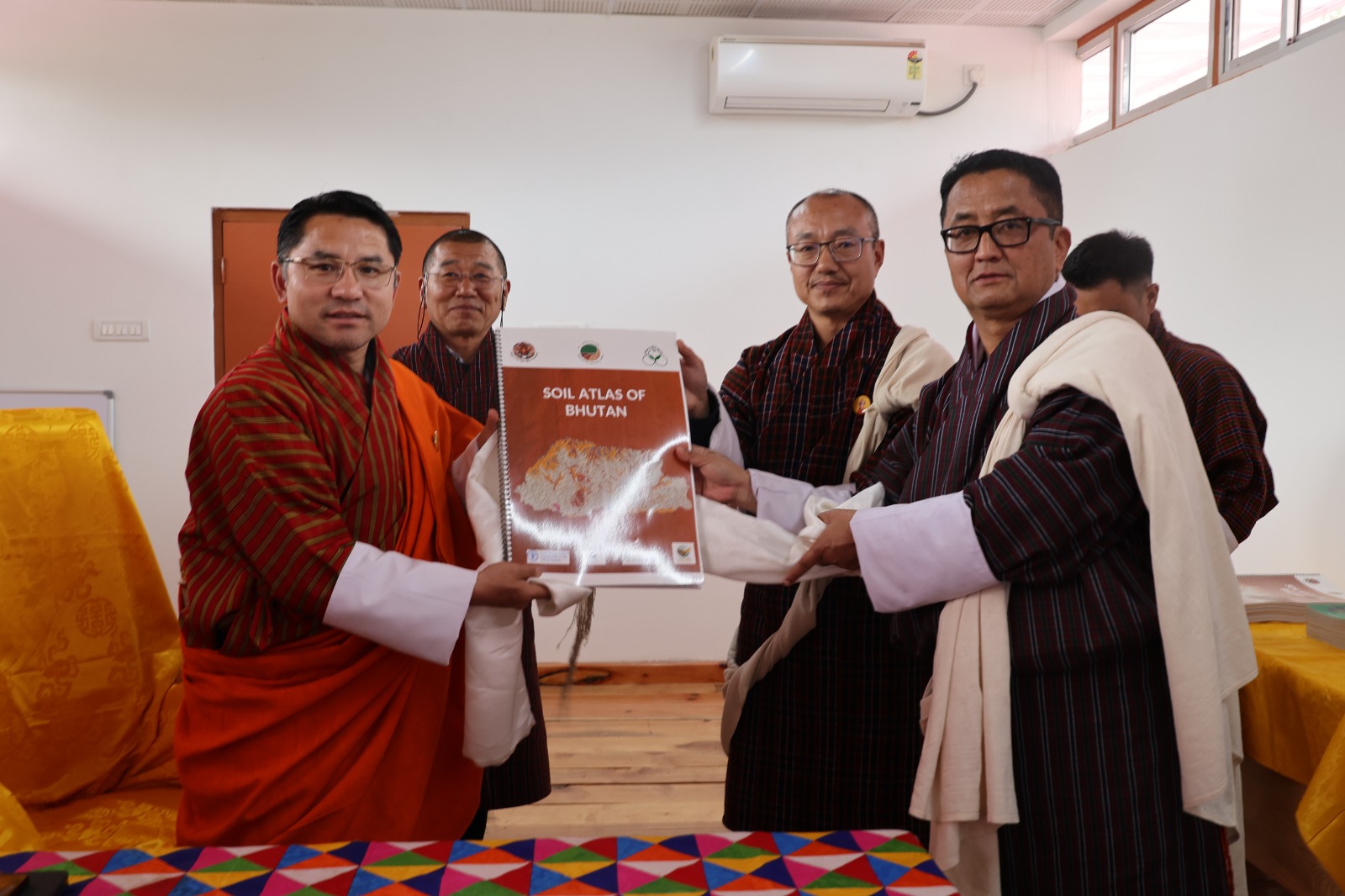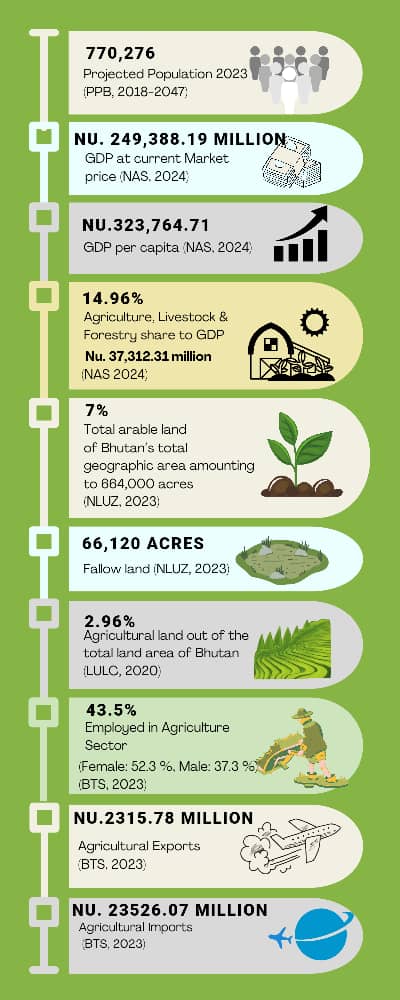March 27, 2024: The Hon’ble Sanam Lyonpo Younten Phuntsho launched the first-ever Soil Atlas of Bhutan today. It constitutes the most comprehensive and up-to-date soil information, presenting a detailed overview of the soil characteristics across the 20 Dzongkhags of Bhutan.
The preparation of the Soil Atlas began in 2019 and took over five years to complete the Atlas. The map was prepared using soil information from 1,882 sampling points (including soil profile and auger bore). The sampling points covered all 20 Dzongkhags with primary focus given to agricultural land. The soil information generated from the above sampling points was combined with the environmental covariates (soil forming factors) derived from satellite data and using advanced machine learning tools and methods, spatial prediction of soil properties was generated resulting in Soil Maps at the national and Dzongkhag levels. The result shows seven different types of soil in Bhutan reflecting a broad combination of climatic, geological, and geomorphological conditions, biological diversity and soil parent materials.
Together with Soil Atlas of Bhutan, Fertilizer Recommendation Guide – 2024 (FRG-2024) was also launched. FRG-2024 is the third edition which was updated using the recent soil information from 20 Dzongkhags. It includes Dzongkhag-wise fertilizer recommendations for major crops and for selected hybrid crops and quinoa. In addition, the guide also covers other important topics that are crucial for sustainable soil management.
The Hon’ble Minister congratulated the National Soil Services Centre (NSSC) of the Department of Agriculture for their hard work and invaluable contributions in bringing out the two most important publications – Soil Atlas of Bhutan 2024 and FRG – 2024, which marks a significant milestone achieved by the Centre. Lyonpo also urged the Centre to reach out the soil information to all the potential users, especially agriculture extension agents and farmers so that they can make informed decisions about the sustainable use of soil and land resources for enhanced national food and nutrition security.

The production of Soil Atlas and its publication including FRG-2024 was made possible through generous financial support from Asian Food and Agriculture Cooperation Initiative (AFACI) and Rural Development Administration (RDA), Korea, and technical guidance and support from FAO experts.
Others present during the launch event were the Hon’ble Secretary of the MoAL, Heads of the Departments (Agriculture and Livestock), Chiefs from the Policy and Planning Division, HR Division and Agriculture Production Division, and officials from the NSSC.

![]()




